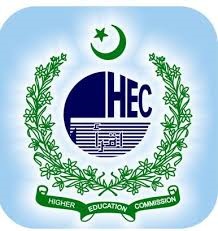Higher Education Commission Pakistan paly a pivotal role in development of Higher education in Pakistani universities. As per HEC education policy Higher Education want to Enhance the our Pakistani universities system according to the work class international level education system. The mission of the Higher Education Commission is to serve as an engine for the socio-economic development of Pakistan. In developing countries, there has been a slow and gradual shift in the role of higher education institutions in building up knowledge economies.

However in Pakistan, universities, under the visionary leadership of the HEC, have rapidly morphed into their new role as producers of employment, The economic prosperity of a country, or its GDP per capita, is directly related to the higher education enrolment per capita and its quality, Knowledge and skills have thus become the global currency of 21st Century economies, but there is no central bank that prints their currency, Countries will have to decide for prosperity. As per education policy 2010, HEC targets to increase accessibility to higher education from the current 8% to 15% by 2020, which translates into an increase in university enrolment from 1m to 2.3m Therefore, in addition to establishing new universities and campuses, HEc will be focusing on improving quality of distance learning students through improved monitoring and use of education technologies. This will be ensured through the Directorates of Distance Education that have recently been established at six large universities, with others to follow.
Faculty development programmes are the mainstay of HEC, With over 7500 scholars currently pursing their PhD degrees on HEC scholarship both within and outside the country, and an additional 2200 having graduate and placed at universities and other organizations, it is estimated that with the projected growth in universities, at least 16000 additional PhD faculty will be required by 2020. All faculty appointments and promotions, which are currently based on qualifications and performance, will also require knowledge transfer initiatives through teaching, research, entrepreneurship, and community service.



